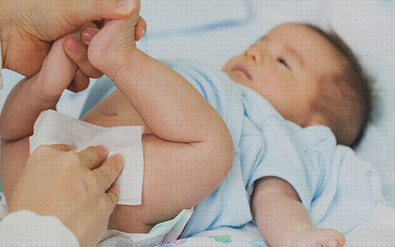Moms are obsessed with baby poop, not because of how messy and stinky it is although it can be, er, intense. But poop, from its color to its consistency, tells a lot about your baby’s health (and ours as well but that’s a different article). The frequency of your baby passing poop or if he’s having difficulty doing so also matters.
And a new study is suggesting that your baby’s poop may be telling you something about his immune system. American researchers found that the pH balance of baby poop (at least in the United States) has been steadily increasing, from 5.5 to 6.5 from 1926 to 2017, with a rapid increase starting in 1980.
The pH balance measures if something is acidic or alkaline. A pH balance of 6 and below indicates acidity while having a pH balance number of 7 and higher indicates alkalinity. Researchers add that measuring the pH balance has been helpful in identifying the number of good bacteria called “Bifidobacterium,” specifically its subspecies b.infantis in baby poop.
How can the pH balance tell the presence of bacteria? Bifidobacterium releases acid as it breaks down milk your baby consumes. The acid it releases is then removed from the body through poop. If baby poop is losing its acidity, it could mean that it contains a lower number of good bacteria.
So, what does this all mean? The digestive tract plays a vital role in developing a baby’s immune system. Previous studies suggest that good bacteria protect our baby from disease, and a decline in his “gut health” puts him at risk of developing asthma, allergies, and other autoimmune diseases.
Bethany Henrick of the University of Nebraska and Evolve BioSystems Inc. and her colleagues said three factors could be “killing off these beneficial bacteria“:
- Infant formula. It could affect which bacteria thrive in an infant’s bodies. Breast milk, on the other hand, has been shown to “plant good bacteria” in a baby’s digestive system.
- Antibiotics. While it helps protect moms and babies against infection during labor and childbirth, it could also kill off good bacteria.
- Increased C-section births. It limits the transfer of good bacteria from a mother to her baby that naturally happens during vaginal deliveries. This is how seeding a C-section became popular once.
It cannot be said that the three factors mentioned above are detrimental to your baby’s health. C-sections have saved countless of mom and babies’ lives, and the same goes with antibiotics. There are a host of reasons why supplementing with formula milk is necessary. The researchers need further studies to identify the good bacteria and how much more of it babies need.
The study gives doctors and parents vital information to assess the way we use antibiotics, for example. There’s a reason why it comes with a prescription, and yet you’ll hear a lot who self-medicate. If anything, the study is a good reminder that if you’re planning to get pregnant, self-care is paramount because it can help lower your chances of a C-section.



